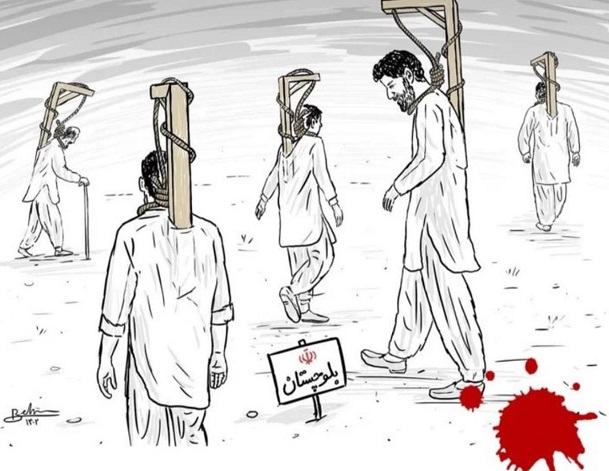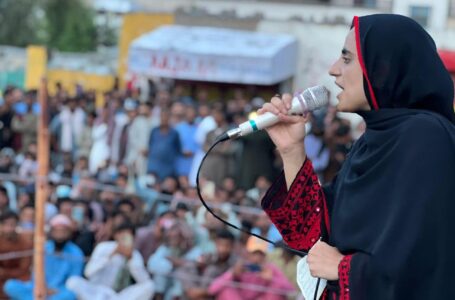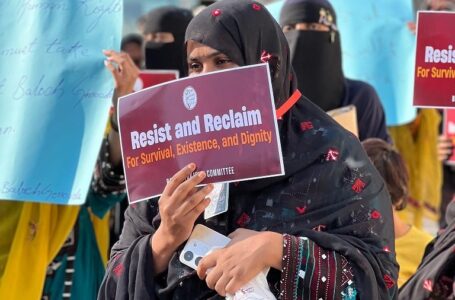FBM Holds Simultaneous Protests Against Pakistan’s Nuclear Tests on Baloch Land
A Surge in Executions of Baloch in Iran

Photo Credit: Facebook
By Shoaib Baloch
The latest Iranian regime’s systematic surge in executions of non-Persians, particularly Balochs and Kurds, is a flagrant violation of human rights. This practice has been ongoing since the Islamic regime came to power in Iran, but it also existed during the reign of Mohammad Reza Shah Pahlavi. The regime’s security agencies carry out these executions with forced confessions, although the accused often deny the accusations leveled against them.
According to the annual reports of Baloch Activists, at least 79 Baloch were executed in the prisons of the Islamic Republic in 2021. These executions were based on a variety of charges, including drug crimes, murder, ignorance of charges, cooperation with opposition groups and armed actions, and membership in opposition groups. The majority of these charges are often used as a pretext to target Baloch citizens in Iran.
It is important to note that Baloch have long been marginalized in Iran. They have faced discrimination in education, employment, and other areas of life, and have been subjected to arbitrary arrests, torture, and extra-judicial executions. The latest alarming trend of growing executions of Baloch by the Iranian state is yet another way in which it perpetuates this discrimination and oppression.
Moreover, these executions are carried out without due process and violate basic human rights principles. The accused are often denied access to legal representation, and trials are held in secret without the presence of independent observers. In many cases, confessions are obtained through torture or other forms of coercion, and the accused are not given the opportunity to defend themselves.
The international community has repeatedly condemned Iran’s human rights abuses, including its execution of members non-Persian nations. However, these condemnations have not resulted in any meaningful change in the regime’s behavior. The regime has become increasingly brazen in its violations of human rights, particularly since the election of hardliner Ebrahim Raisi as president in 2021.
It was always obvious that if Raisi becomes president execution rate of Baloch will raise, particularly concerning his past actions as first deputy chief of Iran from 2004 to 2014 was marked by numerous human rights abuses, including the execution of hundreds of Baloch.
The Iranian regime’s execution of non-Persians is a blatant violation of human rights and must be condemned by the international community again and again until it stops. It is time for the Iranian regime to be held accountable for its actions and for justice to be served for the victims of these atrocities. The Islamic regime is using executions as a tool of repression because every time Baloch activists raise their voices for their rights the number of execution raises.
The number of silent executions has increased in Balochistan since December 2022, when Baloch people started protesting against the rape of a Baloch girl by the Chabahar police chief. The situation in Balochistan has been tense for a long time, and the recent events have only made things worse.
The Iranian regime’s increasing use of the death penalty as a tool of repression has once again come under scrutiny, with the Baloch community bearing the brunt of this repression. In the past, less than a week, at least 22 Baloch prisoners, including two women, have been executed in Iran’s prisons. Two other Baloch prisoners have also been transferred to quarantine to carry out their death sentence, sparking outrage and condemnation from Baloch activists who believe that this is a form of government revenge against them.
Baloch activists have accused the Iranian regime of committing genocide against the Baloch people. Baloch prisoners are being executed because they are Baloch. After all, individuals from other parts of Iran who are accused of similar crimes are given much less severe punishments and most often walk free after serving their sentences.
This latest wave of executions is not an isolated incident, it is rather part of a broader pattern of repression against non-Persian nations in Iran. According to local Baloch journalists’ reports, at least 200 Baloch have been executed in 23 prisons across Iran over the past year, with most of the executions occurring outside Balochistan.
This alarming trend is indicative of the Iranian regime’s discriminatory policies towards Baloch people, and their use of the death penalty as a tool to intimidate and silence dissent.
Amnesty International’s report on Iran’s use of the death penalty highlights that 81 percent of the documented executions were related to drug offenses. However, people were also hanged after being sentenced to death on security/political charges. This highlights the arbitrary and unjust use of the death penalty in Iran and the disregard for due process and fair trials.
As the protests continue and the government shows no sign of ending the executions, the Baloch community is left wondering what the future holds for them. For now, they remain steadfast in their demands for justice and equality, and for an end to the use of the death penalty as a tool of repression.
Shoaib Baloch is a political and Human Rights activist based in London. He is the Press Officer of the Free Balochistan Movement UK Branch.










